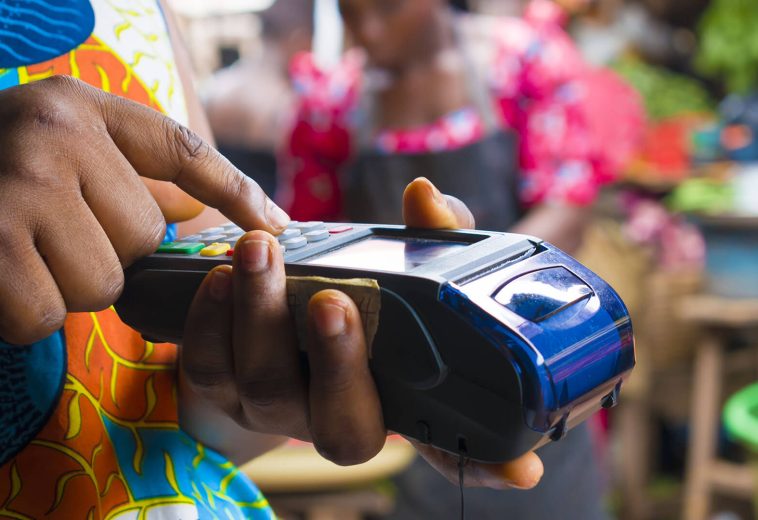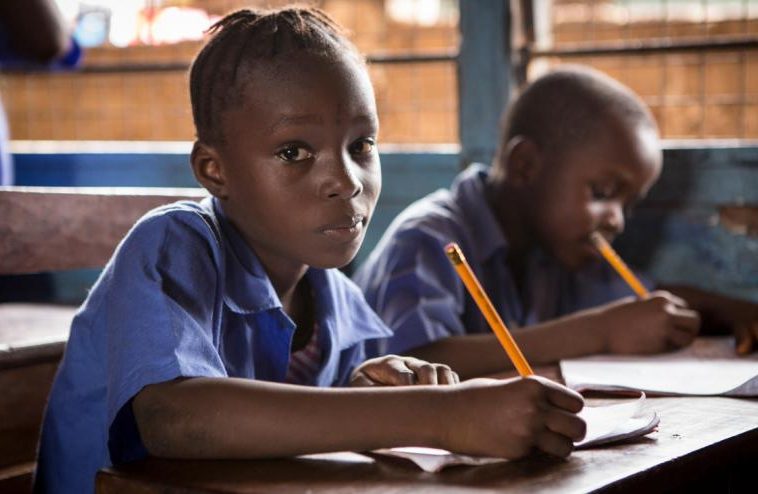Diasporans represent a powerful constituency in the economic development of Africa and remittances are one of the most tangible and significant ways they contribute to developing their homelands. These financial transfers from abroad have a substantial impact on the economies of African countries, often surpassing official development assistance and foreign direct investment, highlighting their critical role in household income, poverty reduction, and economic stability.
The World Bank recorded that in 2021, migrant workers contributed over $95 billion in remittances to Africa, benefiting more than 200 million family members, particularly those residing in rural areas. Remittances from the African diaspora increased by 6.2% in 2021, Sub-Saharan Africa received an estimated US$49 billion in remittances in 2021, with Nigeria leading the inflows, followed by Ghana, Kenya, and Senegal, and in 2022, remittances to and within Africa were estimated at over US$100 billion, benefiting millions of family members.
The magnitude of these remittances strongly reflects the commitment of Africans in the diaspora to participate in the economic development of the continent, according to Thabo Mbeki, “the African Diaspora holds a critical key to the development of our continent. Their skills, resources, and connections are vital in bridging the gap between potential and realization in Africa’s development journey,”. Diasporans are the largest investors in Africa by a fair margin.
According to the World Bank, the African diaspora, estimated at over 170 million people worldwide, is a vital link between the continent and the global economy. Contributing through remittances, investment projects, skill transfer, and cultural influence, the African diaspora has continued to play an indispensable role in the development of their homelands. Their engagement has profound implications for economic development, poverty alleviation, and cultural exchange in African countries.
Remittances are a vital source of income for many African families, helping them meet basic needs such as food, education, healthcare, and housing. In countries like Nigeria, Egypt, and Kenya, remittances constitute a significant portion of GDP, providing financial support amidst economic challenges. These funds also contribute to human capital investment by financing education and healthcare, increasing literacy rates and skill levels, and improving health outcomes.
Remittances also fuel entrepreneurial activities, with many recipients starting small businesses that create jobs and stimulate local economies. The diaspora’s financial support plays a pivotal role in fostering entrepreneurship and economic self-sufficiency. Beyond remittances, the African diaspora is increasingly involved in direct investment projects in their home countries, investing heavily in real estate, agriculture, and technology. These investments contribute to urban infrastructure development, job creation, and innovation.
Diaspora communities are instrumental in preserving and promoting African cultural heritage through events, festivals, and exhibitions, fostering pride and identity among African communities and facilitating cultural exchange. They also significantly contribute to the arts and creative industries, drawing inspiration from their African heritage. The success of African films, music, and literature on the international stage enhances the visibility of African culture and stimulates creative industries in their home countries.
The African diaspora also has a significant impact on the global culinary scene, introducing African cuisine to new audiences and creating demand for traditional African ingredients. Their activism and advocacy efforts contribute to positive social change and the development of more inclusive and equitable societies.
What African Diasporans are saying:
Sarah Adebayo, a Nigerian-American entrepreneur, said, “Through the remittances and investments from our diaspora community, we’ve been able to build schools and healthcare facilities in my hometown. This has had a transformative impact on the local community.”
Mohamed Hassan, an Ethiopian residing in the UK, explains that: “Contributing to the GERD has been a point of pride for many of us in the diaspora. It’s more than just a dam; it’s a symbol of progress and self-reliance for Ethiopia.”
Jane Mwangi, a Kenyan fintech expert in the US, says: “Our involvement in developing platforms like M-Pesa shows the potential of the diaspora to drive technological innovation and financial inclusion in Kenya.”
Kwame Owusu, a Ghanaian investor living in Canada: “Investing in real estate back home has been incredibly rewarding. Not only have we developed modern housing projects in Accra, but we’ve also created numerous jobs in construction and property management. Seeing the tangible impact of our contributions makes us feel deeply connected to Ghana’s growth.”
Fatima Al-Mahdi, a Sudanese-American healthcare professional: “Through our organization, we’ve been able to provide critical medical supplies and training to hospitals in Sudan. The gratitude from the communities we serve is overwhelming. We’re not just sending money; we’re building a healthcare system that can sustain itself.”
Oluwatobi Akintola, a Nigerian tech entrepreneur in Silicon Valley: “Setting up a tech hub in Lagos has been a dream come true. We’ve managed to foster innovation and support young tech enthusiasts who are now developing apps that solve real problems. The energy and creativity in Nigeria are unparalleled, and I’m proud to be part of this technological revolution.”
Amina Mohammed, a Somali-American community organizer: “Our cultural events and festivals in the diaspora not only celebrate our heritage but also raise funds for educational programs in Somalia. It’s heartening to see our traditions bringing people together and making a difference back home.”
John Banda, a Malawian agricultural expert in Australia: “Through agricultural training programs and funding, we’ve introduced sustainable farming techniques to villages in Malawi. This has improved food security and increased crop yields, ensuring that communities can thrive even in challenging climates.”
Layla Ahmed, an Egyptian filmmaker in the UK: “My films, inspired by Egyptian culture and stories, have gained international acclaim. This visibility has not only put Egyptian cinema on the map but has also inspired many young filmmakers in Egypt to pursue their dreams.”
Eric Mathews, a Kenyan engineer in Germany: “By collaborating with local universities and industries, we’ve been able to transfer cutting-edge engineering skills to students in Kenya. This has led to the development of innovative solutions in infrastructure and technology, fostering a new generation of skilled professionals.”
Hawa Kamara, a Liberian educator in the US: “Establishing scholarships and educational programs for girls in Liberia has been my way of giving back. Education is the key to breaking the cycle of poverty, and seeing these young women excel is incredibly fulfilling.”
Kofi Agyeman, a Ghanaian chef in France: “Introducing West African cuisine to new audiences has been a fantastic journey. Our restaurant in Paris not only showcases the rich flavors of Ghanaian food but also sources ingredients from Ghana, supporting local farmers and businesses.”
Aliyu Bello, a Nigerian activist in Canada: “Advocating for better governance and human rights in Nigeria through our diaspora network has made a significant impact. Our efforts have led to increased awareness and policy changes that benefit the people back home.”
Rita Kone, an Ivorian fashion designer in Italy: “Bringing African fashion to the European market has been transformative. Our designs, inspired by traditional Ivorian patterns and textiles, have gained international recognition, creating a market for African fashion and empowering local artisans.”
Samuel Tadesse, an Ethiopian academic in the US: “Participating in the Carnegie African Diaspora Fellowship Program has allowed me to collaborate with Ethiopian universities, enhancing academic standards and research capabilities. This exchange of knowledge is crucial for building a robust educational framework in Ethiopia.”
These testimonies highlight the multifaceted and impactful contributions of the African diaspora, showcasing how individuals leverage their skills, resources, and networks to foster development and improve lives in their home countries.
Despite the significant contributions of the African diaspora to homeland development, several challenges and opportunities shape their engagement. African governments can boost diaspora engagement by implementing supportive policies, creating institutional frameworks, and establishing diaspora desks. Public-private partnerships in infrastructure, healthcare, education, and technology can leverage diaspora resources and expertise. Advancements in technology can facilitate virtual skill transfer, investment opportunities, and cultural exchange. Issuing diaspora bonds and investment funds can mobilize financial resources for development projects. Strengthening diaspora networks and alliances can enhance collaboration and coordination among members, amplifying their impact on development.
The African diaspora’s contribution to homeland development is multifaceted and far-reaching. Through remittances, investment projects, skill transfer, and cultural influence, the diaspora plays a pivotal role in shaping the economic, social, and cultural landscapes of African countries. While challenges exist, the opportunities for leveraging diaspora engagement are vast. By fostering supportive policies, enhancing public-private partnerships, and leveraging technology, African countries can maximize the potential of their diaspora to drive sustainable development and achieve their development goals. The African diaspora, with its wealth of resources, skills, and cultural heritage, remains a vital force for the advancement and prosperity of our continent, Africa.


